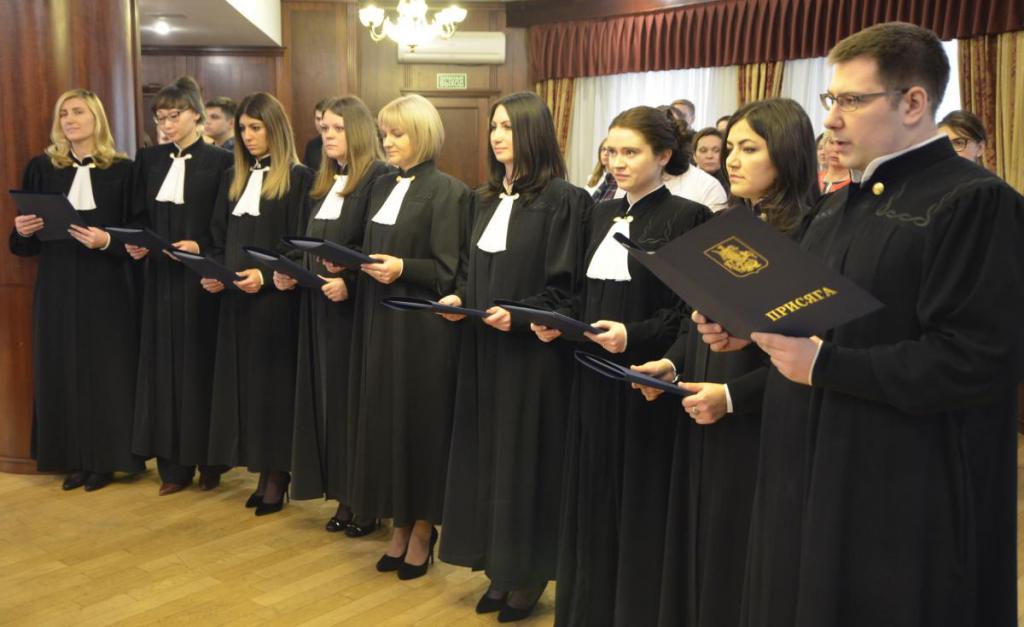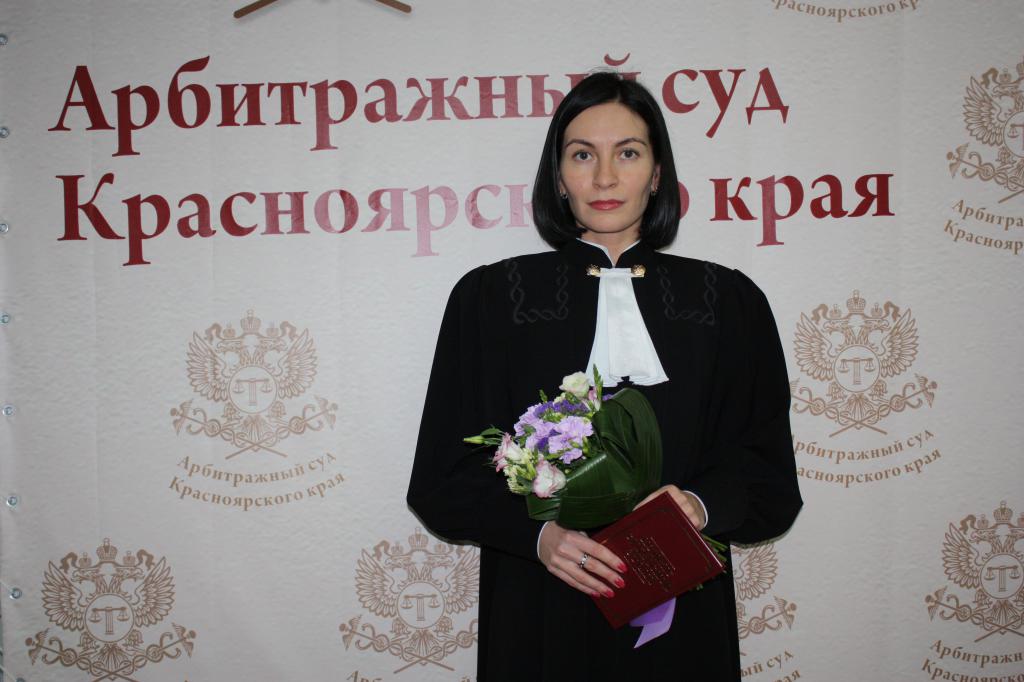Before you figure out the procedure for empowering judges, you need to decide who they are. Unfortunately, there is very little clear information, and therefore, in order to understand this or that article, one has to take an accelerated course in the necessary field. We will tell you the main thing in an accessible language.
Who is the judge?
Judges are the only bearers of power in our country. They have a single legal status, which does not depend on which court they work in and to which judicial link they belong. Although they have one status, they still have differences - competence and authority. There is a special procedure for empowering judges. For these reasons, considerable demands are made on judges.
Requirements for a candidate

Before moving on to the procedure for empowering judges, you need to understand what requirements they must meet. So, we started:
- Only a citizen of our country can become a judge. The absence of citizenship or dual citizenship automatically excludes the applicant.
- Candidate's education must be higher. It also matters where it was received, for example, a university that does not have state accreditation does not fit the requirements.
- The age of a person. Under the law, a person who is already 25 years old can become a judge. However, this is not the only feature. The procedure for empowering judges, as well as age, depends on the court where the person plans to work. So, in the Constitutional Court you can become a judge only after 40 years, in the Supreme and Supreme Arbitration Court - a person no younger than 35 years old. If we are talking about the supreme regional, republican or regional court, as well as the city court of federal significance, the court of the autonomous region, the district military court or the federal arbitration court, then in this case the judge should not be younger than 30 years old.
- Work experience. In the procedure for the selection and empowerment of judges, the length of service of the candidate also plays a role. The general rule implies five years of experience, but here there are some nuances. For example, to work in the Constitutional Court, a candidate must have at least fifteen years of legal experience. In the Supreme and Supreme Arbitration Court - not less than ten years of work, and in the republican supreme court, regional or regional court, district military court - not less than seven years.
Work experience

The procedure for the selection and empowerment of judges begins with determining the length of service of the candidate. This moment is regulated by by-laws and is detailed in detail.
That is, the experience of work is considered all the time that a person worked in positions that require a legal education. And it should be government bodies, state bodies of the subjects of our country. This applies to those that are consistent with the Constitution, and those that existed before its adoption. This also includes positions in local governments and in municipal institutions.
This also applies to positions in the Judicial Department under the Supreme Court of our country, as well as legal organizations, research institutions and institutes. That is, teachers of disciplines related to jurisprudence can also become judges. Lawyers and notaries also have every chance.
Medical examination
The judge must undergo a medical examination to rule out diseases that interfere with work. These diseases are a whole list, which is approved by the Council of Judges of our country.The basis is the representation of the executive authority of federal significance in the field of healthcare.
A candidate for a judge should not be judged in the past or present, he must have exceptional knowledge in the legal field. This must be confirmed by scientific works, academic degree or rank. The future judge must have high business and moral qualities.
Candidate Selection

Before we learn about the procedure for empowering judges with judicial powers, we will talk about how the selection for a judge is held.
Candidates are selected based on the competition. The chairman of the court where a new judge is needed, reports this news to the qualification panel of judges within ten days from the moment the vacancy is opened. The panel of judges, within another ten days, must notify through the media that there is a vacancy and the place and time of the meeting.
Any person who meets the requirements of the Law “On the Status of Judges” has the right to take a qualification test to obtain a judge’s position. To do this, you need to contact the qualification commission and write a statement.
In addition, you must submit a document proving your identity (original and copy), a questionnaire with your own biographical data, a document confirming the presence of a legal education in the original and copies, a medical certificate confirming the absence of diseases affecting the position.
Examination board
The examination committee must comply with the provisions of the Law "On the Status of Judges" and the regulations on examination commissions for taking the qualification exam for judges.
Such commissions are located at the qualification judicial boards. They are formed by experienced judges. Participation in collegiums of legal scholars and teachers of legal disciplines is not ruled out. How many people will be included in the commission is decided by the qualification panel of judges. Judges should not be less than three-quarters of the entire judiciary.
The composition of the examination committee is approved by the same qualification panel of judges. The powers of the examination committee and the qualification board are the same in term. The examination committee is chaired by the chairman, he also coordinates its work.
Exam

The chairman of the examination committee appoints an exam after a candidate for a judicial position appears and brings a statement and necessary documents. The latter do not have the right to refuse to pass the exam. The place and time shall be notified no later than ten days before the exam itself. It must be held no later than thirty days after the candidate has filed a surrender application. The examination committee has the right to take an exam if there is at least half of its composition. Half of this amount should be judges.
Only a person who is not a judge can pass a qualification exam. His results can be used for three years, if the person was appointed to the position of a judge, then his results are valid for the whole time of his work in the judicial position.
The exam is held in a ticket form. One ticket contains three questions on legal branches and two practical judicial tasks. If the examination committee decides, a written assignment regarding the procedural documents is added to the ticket. The content of tickets and assignments depends on the field of the judicial position the candidate is applying for. If the exam for a position in the court of a subject of our country, then the questions will be from the field of legislation of this subject.
If a person passes the exam, then they will be issued a certificate and an extract from the protocol of the examination session. With these papers, the candidate may apply to the qualification board with an application for a free position.
The college is obliged to verify the accuracy of the data on the candidate and his documents.Moreover, the colleges do not have to do personal checks. Employees may seek assistance from the competent authorities. The latter are obliged to provide all the information within the time period established by the board. If there is no minimum time, then the maximum time for fulfilling the request is two months.
After all candidates are checked for validity, the board can choose one of them and recommend an open position. If the recommendation was denied, then the applicant may appeal this in court. Moreover, both the decision itself and the violation of the selection procedure may become the grounds.
The decision of the board with the recommendation is sent to the court that is looking for a judge. If they agree with the chosen candidacy, then an idea of the appointment shall be made. When the chairman of the court does not agree with the decision, he returns it back. If the second decision is the same, then the chairman is obliged to accept the person to work.
Empowerment Procedure

The procedure for empowering judges of the Constitutional Court of the Russian Federation, as well as the Supreme and Higher Arbitration Court, is that they are appointed by the Federation Council. But the Federation Council does not single-handedly determine the judges, this happens on the proposal of the president of our country. The latter, before releasing the submission, is based on the opinion of the chairmen of the country's Supreme Court and the Supreme Arbitration.
The procedure for empowering federal judges is different. They are elected on the proposal of the chairman of the Supreme Arbitration Court, and the president already appoints.
The judges of the general jurisdiction of the federal courts are appointed according to a recommendation from the chairpersons of the Supreme Arbitration Court and the Supreme Court. Judges are also appointed by the president.
The judges of the Military Court are appointed by the President, and the President of the Supreme Court issues the submission.
So that was general information. Now, let us consider the algorithm of conditions and the procedure for vesting judges with judicial powers.
After the president has received all the necessary documents, he must appoint a judge of the federal court within two months. The President presents the candidates to the Supreme and Supreme Arbitration Court to the Federation Council, which already agrees with or rejects the candidates. In any case, the chairman of the court, in which the judge is required, is notified of this.
The procedure for empowering judges of the Constitutional or any other court obliges to appoint a post only if the opinion of the qualification panel of judges is positive.
Judges of the Supreme Arbitration and Supreme Courts are required to take the oath of office at the panel of judges.
In order to gain the status of judges, the procedure for empowerment obliges judges of lower courts to take the oath too. Only this will happen at conferences or congresses of judges. The oath is taken in front of the flag of our country, if we are talking about a republic that is part of the Russian Federation, then also in front of the republican flag.
As for the procedure for empowering a justice of the peace, it is established by the laws of the subjects of our country and federal.
Term of office
Only the federal judge who was appointed for the first time is limited in time. This is thirty six months. If the appointment is repeated, then there are no time limits. But there is a maximum age after which it is impossible to occupy the post of judge of the federal court - seventy years.
Three years relate only to the appointment of a federal judge, but not to the judicial position of the Constitutional, Supreme Arbitration and Supreme Courts. As soon as these three years pass, the judge can be appointed again, but already without a time limit. Moreover, the procedure for empowering judges in the Russian Federation remains the same even in the case of re-appointment.
The term of office of a judge of the Constitutional Court of a subject of our country is established in accordance with the regulatory enactments and laws of the same subject.
The order of empowerment of a justice of the peace is already known to us, now let's talk about the terms. They are established by the subject of the country where the appointment occurs. The main rule is that it should not exceed five years. This applies to the first appointment, if the appointment is repeated, then the term must be at least five years. The procedure for empowerment and competence of justices of the peace remains the same.
After the judge takes the oath, he is considered to have started work. If a person has already taken the oath, then his appointment is considered the beginning of work.
When a judge has expired or has reached a maximum age, he will still carry out his duties until a new judge is appointed. If this is not possible, then until the completion of the consideration of the case, which he began to conduct.
Termination or suspension of authority

The procedure for empowerment of district and justices of the peace is the same. But this does not mean that they cannot suspend or strip a judge. There must be a basis for these actions. Here are some of them:
- The judge was found missing. In this case, a court decision must be made, which has already entered into force.
- A judge passes a defendant in a criminal case or a criminal case is brought against him.
- The judge put forward his candidacy in the election as a member of the legislative body of our country or its subject.
- A judge was elected to the legislative body of a country or its subject.
If the work of the judge was suspended, then this does not affect his payments. But in cases where the judge is recognized as missing, payments are due to his family in the same amount or reduced. If a judge is taken into custody, his authority will be removed.
Even if the powers are suspended, this does not mean that the judge will lose his integrity or his material and social security will suffer. Whether or not to renew authority, is decided by the qualification panel of judges, which suspended them. In the event of renewal, the procedure for empowering judges of a district court and a magistrate court remains the same except for passing the exam.
To terminate the powers of a judge there must be the following grounds:
- A written statement from the judge himself on the resignation.
- Inability to exercise authority due to a health condition or other good reason.
- A written statement from the judge that he is transferring to another job.
- Achievement by the judge of the upper age ceiling.
- The end of the term of office, if they were established with restrictions.
- Dismissal of a judge from military service in connection with reaching the maximum age. This rule only applies to military courts.
- Termination of citizenship of our country.
- The judge engaged in activities that are incompatible with his position.
- A conviction or a court ruling that a coercive measure in the medical field will be applied to him has come into force with respect to a judge.
- The judge was declared legally incompetent or a decision on his partial legal capacity entered into force.
- A judge has died or his decision to declare himself dead has entered into force.
- The judge refuses to go to another court, since the one in which he works is reorganized or abolished.
In addition to the procedure for vesting judges with judicial powers, there is also a resignation procedure. She is called the honorary farewell of a judge from office. For those who resign, they retain the judicial rank, membership in the judicial community and personal integrity. It is important to know that each judge can resign of his own free will at absolutely any age.
Conclusion

In the article, we examined what are the procedures for empowering judges.We were convinced that there is not much difference in them. Only the highest judicial posts differ.
In general, regardless of the position, the judge must perform his work qualitatively. It was not in vain that all these requirements were put forward that were put forward during the selection of candidates. A judge is a person who decides fate, which means that he, like no other, must understand the law and have extensive experience.
Unfortunately, the judiciary in our country is not particularly respected, all because some judges exceed their powers and neglect their duties.
But since we remember that absolutely anyone who meets the requirements can become a judge, it is in our power to change the situation. If people who are truly enthusiastic and dedicated to the case come to judge, there will not be so many ruined lives and incorrect court decisions. After all, what is the most important thing for a judge? Right, impartiality. As you know, it is this quality that allows you to correctly make decisions and sentences.
Most judges forget about this, and in the end we have what we have. The same applies to duties, for some reason some judges consider themselves entitled to violate the prohibitions. Although it is prosecuted by law. So let's guess that they will soon select truly responsible people who will not neglect job descriptions. We hope that our wish will come true. It will be so.
